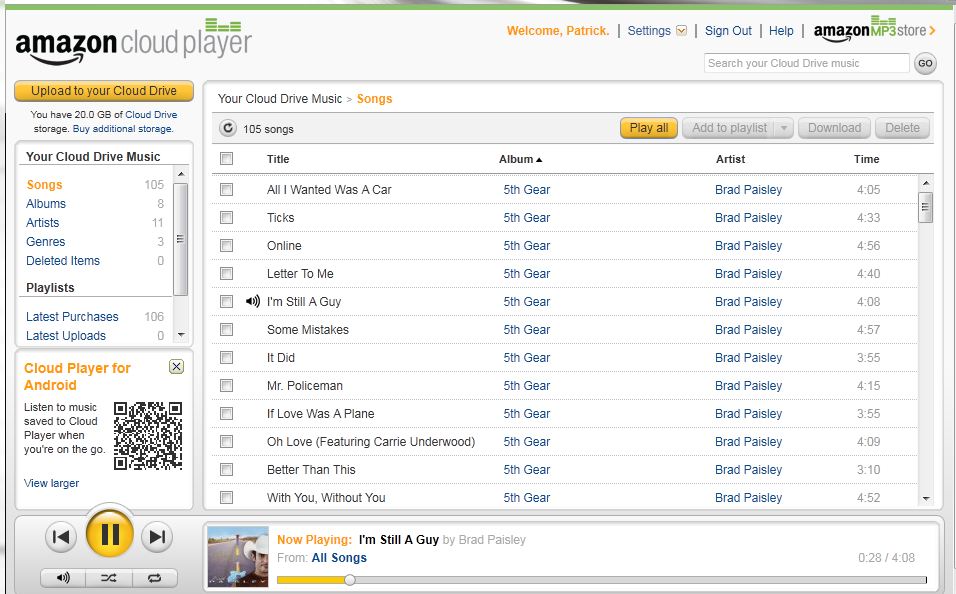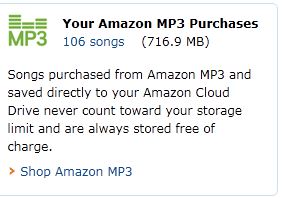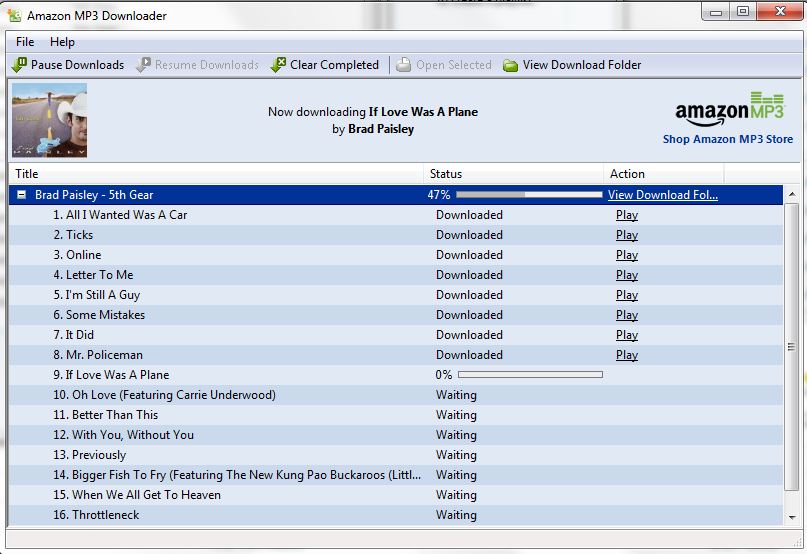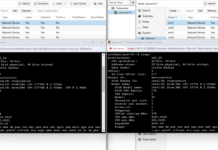When Amazon.com announced that it was releasing its cloud player, whereby users can purchase DRM-free MP3’s and store them in the cloud, one question remained in my mind, could the service be the beginning of the end for home servers? After using the service for awhile, I think the answer at this point is no, but it is a really great value proposition. With Google and Apple launching cloud-based music solutions following Amazon’s lead, I thought I would take the opportunity to share some thoughts.
By way of background, I recently changed to a Motorola Atrix 4G, Android based phone even though I have an iPad and newest generation iPod Nano, iPod Touch, and Macbook Air. I am fairly familiar with the Apple and iTunes side of things, but I do purchase the majority of music on Amazon.com since one purchases no-DRM MP3’s instead of Apple AAC files. The practical benefit is that I customarily store music on the home server and can stream to any network enabled device. Another benefit is that Amazon prices its MP3’s very aggressively so to give one an idea in the last week I saved over $20 by using Amazon on a few purchases over iTunes. For example here is an album I purchased while writing this piece (Amazon runs monthly sales with $5 albums which can be found in the Amazon MP3 Store):

My workflow prior to Amazon cloud player was simple, I purchased music and downloaded it to my home server. Now, my process is a bit more complex. I purchase music, let it get “stored” in the cloud drive (note quotations around stored because as one can imagine this is an awesome application for deduplication.) After it is stored in the cloud, I usually download music to the home server and the download manager application adds albums and tracks to Windows Media Player and iTunes at the same time.
Another option I have is to play the cloud stored media on the Cloud Player. This works on desktop browsers and Android handsets (there is an app for this.) My iPad still won’t load the cloud player correctly, but I suspect this will change over time.

Now the first thought I had was that playing music in the cloud is awesome! There is good reason Amazon, Google, and Apple are all exploring this since it essentially gives a handset unlimited storage. In fact, since these providers are just granting access to a handful of media file copies instead of replicating the songs thousands of times each, the cloud providers are allowing users to “store” purchased media for free:
 Saving over 700MB of storage (and growing) on a smartphone is a pretty big deal, but I am still downloading music from the cloud drive or syncing the phone with my home server regularly. With a measly 5GB monthly data allotment, listening to a few hours of music can quickly eat at data limits and start costing the user quite a bit. As the US moves towards metered bandwidth like much of the rest of the world, it becomes more important to download media once and then distribute it within the home to the required devices. That is where home servers will play, despite the fact that the cloud providers are offering something very cool.
Saving over 700MB of storage (and growing) on a smartphone is a pretty big deal, but I am still downloading music from the cloud drive or syncing the phone with my home server regularly. With a measly 5GB monthly data allotment, listening to a few hours of music can quickly eat at data limits and start costing the user quite a bit. As the US moves towards metered bandwidth like much of the rest of the world, it becomes more important to download media once and then distribute it within the home to the required devices. That is where home servers will play, despite the fact that the cloud providers are offering something very cool.
Conclusion
Amazon.com, Google, and Apple all are in various stages of deploying cloud offerings, including online music services. Given the cost of data transfer, downloading media over WAN connections can easily cost more than storing the data and making it available to the home network. Using this model, one is also protected from things like a cloud’s failure (Amazon recently suffered one of these) since data is available locally and in the cloud. While many may may think that cloud storage offerings will hurt the role of home servers, the cost of transferring that data is going up and as a result storing media in a central storage server still makes a lot of sense.
Feel free to discuss this article on the ServeTheHome.com Forums!




